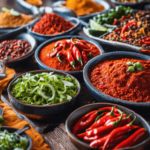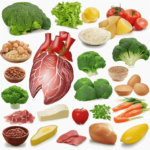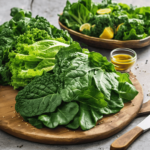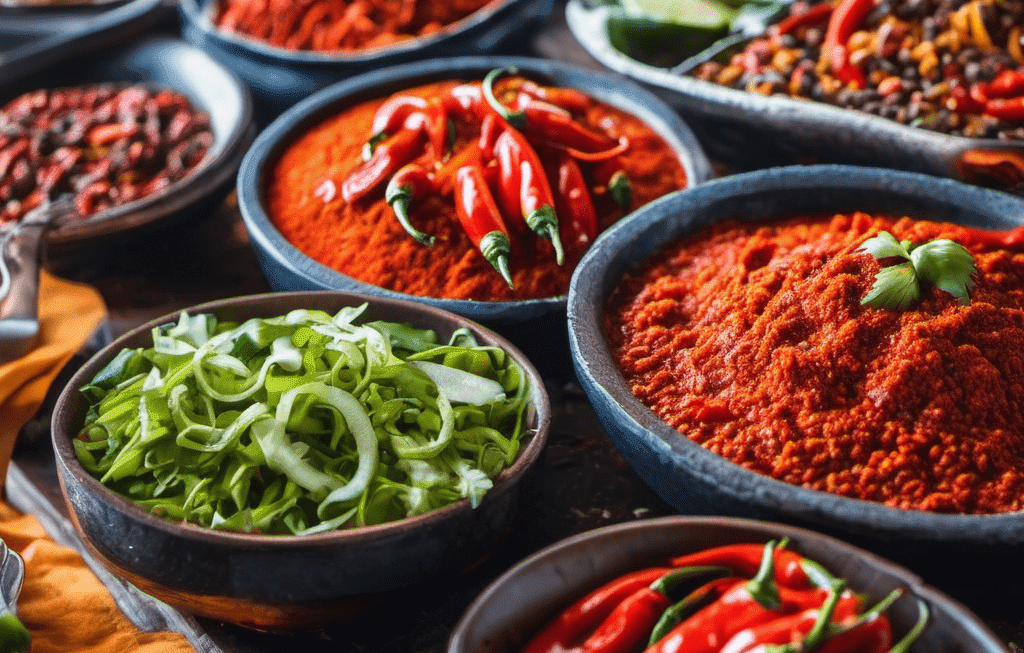When you’re feeling unwell it can be difficult to navigate the world of nutrition because your bodys needs change and what you eat plays a role, in your recovery. It’s important to choose the foods that provide nutrients support your immune system and help alleviate symptoms. During times of illness the saying “you are what you eat” becomes more significant since certain foods can either hinder or speed up the healing process.
In this exploration of the foods to eat when you’re sick we’ll delve into the reasons behind nutritional choices that can aid in recovery and provide relief. From comforting broths to fruits packed with vitamins we’ll discuss a variety of foods that address symptoms associated with illness like inflammation, fatigue and weakened immunity. We’ll also look at the importance of staying hydrated. How fluids contribute to wellness during sickness.
Understanding how food interacts with your body when you’re ill is crucial for making decisions. Whether you’re battling a flu or ailments this guide aims to empower individuals with knowledge about which foods are best to consume. It encourages an approach towards health and well being, during periods.
As we explore the world of healing lets embark, on a quest to uncover the nourishing and soothing foods that can truly make a difference in the process of recovery.
The role of chicken soup:
Chicken soup has been a remedy, for centuries with its reputation as a soothing and nourishing food during illness backed by both tradition and scientific evidence. While it may not be a cure chicken soup can serve purposes in providing relief when you’re under the weather;
-
- Hydration; When you’re sick it’s crucial to stay hydrated. Chicken soup provides fluids that can help prevent dehydration. The warm liquid also offers comfort to a throat. Can be more appealing than plain water encouraging you to drink more.
- Nutrient Intake; Chicken soup typically includes vegetables, chicken and sometimes grains like rice or noodles. These ingredients supply nutrients such as vitamins, minerals and antioxidants that support the system and overall health.
- Electrolyte Balance; The sodium content in chicken soup can assist in replenishing electrolytes lost due to fever, sweating or respiratory symptoms. Maintaining a balance of electrolytes is important for bodily functions like nerve and muscle function.
- Clearing Congestion; The steam emanating from hot chicken soup can help alleviate nasal congestion and facilitate breathing. The warmth and moisture may aid in loosening mucus in the passages and respiratory tract offering some relief, from symptoms associated with colds or respiratory infections.
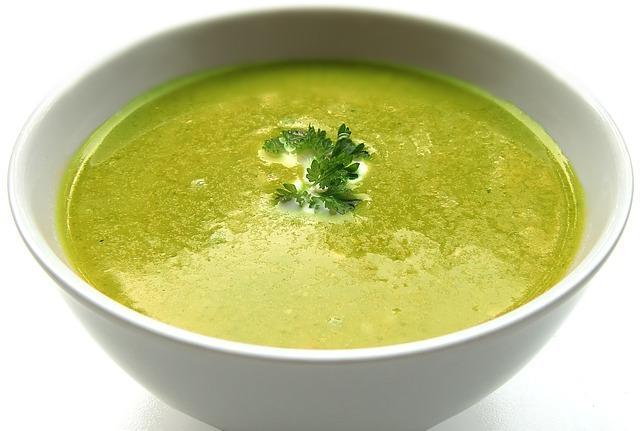
Chicken soup, particularly when it contains ingredients, like garlic, onions and herbs may possess properties that can help alleviate inflammation, in the tract and provide relief from symptoms commonly associated with infections.
-
- Comfort and Psychological Benefits; When you’re feeling sick it’s common to experience discomfort and a sense of not feeling. Chicken soup, with its savory qualities can bring comfort and a sense of well being. Eating an nourishing food like chicken soup can also have benefits by contributing to a positive mindset during illness.
- Promoting Appetite; When you’re unwell your appetite may decrease. Chicken soup is a light and easily digestible meal that might be more appealing than dishes. The aroma and flavor of the soup can stimulate your appetite. Encourage you to consume the nutrients.
While chicken soup can provide relief and comfort it’s important to remember that it should not be seen as a substitute for advice or treatment. If your symptoms persist or worsen it’s essential to consult with a healthcare professional. Additionally individuals, with restrictions or allergies should choose a chicken soup recipe that suits their needs.
Best foods to eat when sick with flu:
Successfully navigating choices while dealing with the flu requires an thoughtful approach. It’s important to recognize that the foods you choose can significantly impact your recovery process. In this context it’s not, about sustenance but finding a balance that provides nourishment, comfort and ease of digestion. Traditional remedies like chicken soup, known for their healing properties work hand in hand with soothing tea. Additionally digestible options like bananas become reliable staples in your nutritional plan. These choices are made with the intention of addressing concerns that come with being sick such as staying hydrated getting nutrients and finding relief for symptoms like a sore throat or nausea. Together these foods create a strategy to manage the discomfort caused by the flu. In the following discussion we will delve into an in depth examination of why these particular foodsre effective and how they not speed up recovery but also contribute to overall well being, during the challenging period of flu induced malaise.

What is Flu:
Influenza, also known as the flu is a disease caused by influenza viruses. It is characterized by the appearance of symptoms, like fever, cough, sore throat, muscle pain and tiredness. The virus spreads through droplets in the air. Can also be contracted by touching surfaces. The flu tends to occur during seasons but can happen throughout the year with outbreaks usually peaking in autumn and winter. Complications such as pneumonia can occur, in groups. Getting vaccinated annually is a measure along with practicing good hand hygiene and avoiding close contact with sick individuals. It’s crucial to distinguish between the flu and common cold symptoms and seeking advice is recommended for those, at higher risk of complications.
Benifits of ginger when sick with flu:
When you’re dealing with the flu incorporating ginger into your diet can offer a multitude of benefits. Lets explore why ginger is such a remedy, during this time;
-
- Anti Inflammatory Effects;
Ginger contains compounds like gingerol, which have anti inflammatory properties. These properties help reduce inflammation in the body including in the tract. This relief can alleviate symptoms like throat and respiratory discomfort that are commonly associated with the flu. - Alleviates Nausea;
Ginger is well known for its ability to combat nausea and vomiting which’re symptoms during the flu. Whether its ginger tea or warm water infused with ginger and lemon these remedies can bring soothing relief to a stomach. - Boosts Immune System;
One of gingers benefits is its immune boosting properties, which can strengthen your bodys defense mechanisms. By supporting your system ginger aids in fighting off the flu virus. Helps you recover more efficiently. - Soothes Sore Throat;
Thanks to its inflammatory and antimicrobial properties ginger can provide relief for a sore throat.
- Anti Inflammatory Effects;
Incorporating ginger into your routine when you’re sick, with the flu offers advantages that contribute to your well being during this time.
When you drink ginger tea it has an comforting effect, on your throat relieving irritation and discomfort.

-
-
Benefits of Antioxidants;
-
How it works; Ginger contains levels of antioxidants that’re essential, in counteracting harmful free radicals within the body. This antioxidant activity promotes well being. May assist the body in managing the stress caused by illness.
-
-
Improving Blood Flow;
-
Why it’s beneficial; Ginger has been proven to enhance blood circulation, which can facilitate the transportation of oxygen and nutrients to parts of the body. This in turn may contribute to a recovery, from the flu.
-
-
Warmth and Comfort;
-
How it helps; The warm and spicy taste of ginger provides a soothing sensation especially when enjoyed as a tea. This comforting warmth can be particularly comforting during episodes of chills and fever associated with the flu.
-
-
Ways to Consume;
-
How it helps; Ginger can be included in forms such as fresh ginger in meals, ginger tea or by infusing water with ginger. Its versatility makes it convenient to incorporate into your diet even if you have an appetite.
-
-
Gingers Antiviral Properties;
-
How it helps; Some studies suggest that ginger possesses properties that may potentially hinder the replication of viruses for causing the flu. While further research is required these initial findings highlight the role of ginger in combating infections.
When dealing with flu symptoms consider incorporating ginger into your meals through teas, soups or, as a spice.However it’s important to seek advice, from a healthcare expert particularly if you have any existing health conditions or take any medications to make sure that ginger is safe, for your health situation.
Foods to eat when sick:
| Category | Foods | Benefits | Considerations | Quantity | |
| 1 | Broths and Soups | Chicken Soup | – Provides essential hydration. – Warm broth soothes sore throat and reduces congestion. – Contains amino acids with anti-inflammatory properties. – Nutrients support overall immune function. | – Choose low-sodium options if watching salt intake. – Ensure the chicken is cooked thoroughly to prevent foodborne illness. | 1–2 cups per serving |
| Clear Vegetable Soup | – Prevents dehydration with essential fluids. – Rich in vitamins and minerals from vegetables. – Comforting warmth helps alleviate nasal congestion. | – Opt for low-sodium broths to control salt intake. – Customize vegetables based on personal tolerances and preferences. | 1–2 cups per serving | ||
| 2 | Herbal Remedies | Ginger Tea | – Anti-nausea properties for upset stomach. – Anti-inflammatory effects may ease sore throat and headaches. – Aids digestion, promoting gastrointestinal comfort. | – Limit ginger if you have a bleeding disorder or are on blood-thinning medications. – Moderation is key; excessive ginger can cause heartburn. | 1 cup per serving |
| Peppermint Tea | – Soothes digestive discomfort, reducing bloating and indigestion. – Alleviates congestion and respiratory discomfort. – Calming effect promotes relaxation during illness. | – Avoid for those with heartburn or acid reflux as peppermint may worsen symptoms. – Limit intake if you have a history of gallstones. | 1 cup per serving | ||
| 3 | Fruits | Citrus Fruits (e.g., oranges, grapefruits, lemons) | – High vitamin C content supports immune system. – Natural sugars provide quick energy. – Water content aids hydration. | – Be mindful of citrus acidity, which may irritate sensitive stomachs or mouth sores. – Dilute citrus juices or choose alternatives if needed. | 1–2 servings per day |
| Bananas | – Easily digestible and gentle on the stomach. – Good source of potassium for hydration and muscle function. | – Monitor intake for those with kidney issues, as high potassium levels may be problematic. | 1–2 servings per day | ||
| 4 | Whole Grains | Oatmeal | – Nutrient-dense and easily digestible. – Provides sustained energy through complex carbohydrates. – Contains fiber for improved digestion. | – Choose plain or lightly sweetened varieties to avoid excessive sugar. – Adjust texture based on personal comfort; some may prefer smoother oatmeal. | 1 cup per serving |
| 5 | Dairy | Yogurt (plain, unsweetened) | – Probiotics support gut health and aid digestion. – Contributes to a healthy balance of intestinal flora, supporting the immune system. | – Opt for lactose-free options if lactose intolerant. – Monitor for dairy allergies or sensitivities. | 1 cup per serving |
| 6 | Leafy Greens | Spinach, Kale | – Rich in vitamins A, C, and K, supporting overall immune function. – Antioxidants combat oxidative stress. – Lightly cooked or blended for easier digestion. | – Cook thoroughly to minimize potential bacterial contamination. – Adjust texture based on personal preference; some may find blending more comfortable. | 1–2 cups per serving |
| 7 | Honey Products | Honey | – Natural antimicrobial properties soothe a sore throat. – Contains antioxidants contributing to overall health. – Adds sweetness to beverages and foods. |
– Avoid giving honey to infants under one year old due to the risk of botulism. – Consume in moderation due to high natural sugar content. | 1–2 tablespoons per day |
| 8 | Comfort Foods | Mashed Potatoes | – Easily digestible source of energy. – Potatoes provide vitamin C, B6, and potassium. – Seasoning enhances flavor. | – Monitor added fats and seasonings for those with digestive issues or dietary restrictions. | 1 cup per serving |
| Applesauce | – Gentle on the stomach, easily digestible. – Provides vitamins and hydration. – Natural sweetness appeals to altered taste preferences during illness. | – Opt for unsweetened varieties to control sugar intake. – Monitor for potential allergies or sensitivities. | 1/2 cup per serving | ||
| 9 | Lean Proteins | Boiled or Grilled Chicken | – Lean protein supports muscle repair. – Easily digestible, minimizing gastrointestinal discomfort. – Light seasoning adds flavor without overwhelming taste buds. | – Choose lean cuts to minimize saturated fat intake. – Adjust seasoning based on personal tolerances. | 3–4 ounces per serving |
Please keep in mind that these recommendations are meant as guidelines and everyones individual needs may differ. It’s important to pay attention to your bodys signals and adjust portion sizes according to your appetite and comfort level. If you have any concerns or health issues it’s always a good idea to consult with a healthcare professional or a registered dietitian, for personalized advice.
Best Foods In The World
Conclusion:
In conclusion making the food choices when you’re unwell plays a role, in aiding your bodys healing process and relieving symptoms. Optimal foods for illness are those that offer nutrients, hydration and comfort without worsening existing symptoms.
When you’re sick it’s beneficial to consume options like fruits, vegetables, lean proteins and whole grains. These foods provide vitamins and minerals that boost your system and promote overall well being. Including antioxidant foods such as berries and leafy greens can also help reduce inflammation and support your bodys natural defense mechanisms.
Proper hydration is key during illness. Consuming broths, herbal teas and fruits with water content can help maintain fluid balance. These fluids not prevent dehydration. Also provide relief for a sore throat and aid, in clearing mucus alleviating common cold and flu symptoms.
While focusing on nutrient choices is important it’s equally crucial to avoid foods that may worsen your symptoms. Processed foods, sugary snacks and excessive dairy consumption can contribute to inflammation. Impede the recovery process.
In addition including foods that’re easy to digest like soups, mashed veggies and steamed proteins can be kinder, to the system. This helps the body absorb nutrients effectively and directs its energy towards the healing process.
In the end having an balanced diet that incorporates these suggested foods can help speed up recovery and give our bodies the tools to fight illness effectively. It’s crucial to pay attention to our bodys signals adjust our diet based on preferences and tolerances and seek advice from a healthcare professional if needed for guidance during sickness. By selecting what we eat we empower our bodies to bounce back faster and regain their state of health.
Frequently Asked Questions (FAQS)
Q; What are some recommended foods to consume when you’re feeling unwell?
A; When you’re under the weather it’s important to nourish your body with nutritious foods that aid in recovery. Here are a few top choices;
Soups based on broth; These warm and comforting soups provide hydration and electrolytes for combating illness.
Bananas; High in potassium bananas help replenish electrolytes and restore energy levels.
Yogurt; The probiotics found in yogurt can enhance gut health and strengthen your system.
Toast or crackers; These mild and easily digestible carbohydrates offer an energy boost without upsetting your stomach.
Applesauce; It is gentle, on the stomach while providing vitamins and fiber.
Ginger; Renowned for its inflammatory properties and ability to alleviate nausea.
Honey; Soothing for sore throats and coughs.
Green leafy vegetables; Loaded with immune supporting vitamins and minerals.
Remember to consult with a healthcare professional if your condition worsens or persists.
Q; What are some foods I should avoid when I’m not feeling well?
A; There are foods that can make your symptoms worse or hinder your recovery. It’s generally best to steer of the following;
1. Foods; They can potentially irritate a sensitive stomach.
2. Foods; These greasy treats are difficult to digest. May put extra strain on your digestive system.
3. Drinks; They have the potential to worsen inflammation and contribute to dehydration.
4. Processed foods; These often contain fats. Lack essential nutrients.
5. Dairy products; Some individuals find them hard to digest especially when they’re unwell.
Q; Is it necessary for me to eat even if I don’t have an appetite?
A; Yes it’s important to consume meals even if you don’t feel hungry. Eating helps provide fuel for your bodys recovery process maintains energy levels boosts the system and prevents muscle loss.
Q; Is the BRAT diet still recommended?
A; While the BRAT diet (Bananas, Rice, Applesauce and Toast) used to be a recommendation, for stomachs it is now considered too bland and restrictive. While these digestible foods can be helpful during bouts of nausea or diarrhea it’s crucial to include nutrient rich options, for a well balanced diet.
Q; Should I make sure I drink fluids?
A; Absolutely it’s really important to stay hydrated when you’re feeling under the weather. Make sure you drink lots of water, clear broths and herbal teas to replenish the fluids your body loses due, to sweating and fever.
Q; What should I do if I’m still not feeling better after a days?
If your symptoms continue or worsen even though you’re eating and drinking properly it’s an idea to reach out to a healthcare professional for diagnosis and treatment. They can provide recommendations, for adjustments and other measures based on your specific needs.



